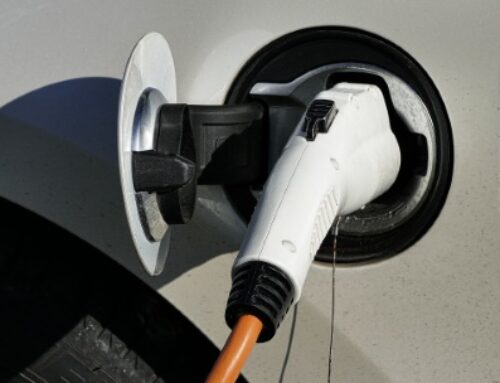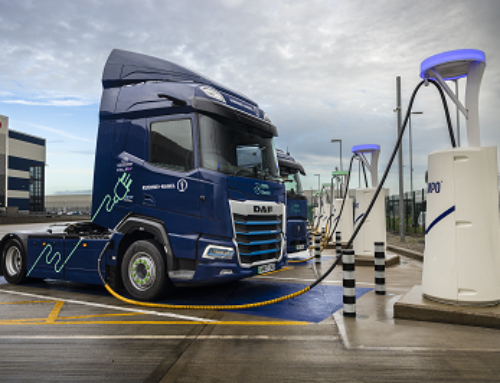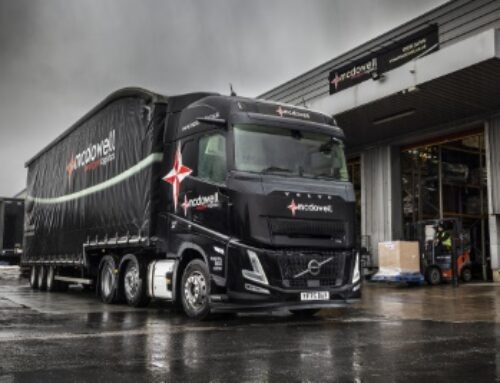Haulier stowaway fines rise
 Drivers and operators who inadvertently bring immigrants into the country illegally are to see the maximum civil penalty fines imposed rise considerably from 13 February.
Drivers and operators who inadvertently bring immigrants into the country illegally are to see the maximum civil penalty fines imposed rise considerably from 13 February.
Following a consultation, the Home Office has announced that individuals found to be responsible for a first incident of carrying a clandestine entrant will now be liable for maximum penalties of £6,000 per entrant, which will rise to £10,000 for a second and subsequent incidents in the past five years.
Meanwhile, an individual person responsible for ‘failing to adequately secure a goods vehicle’, a new offence, will attract a maximum £1,500, £3,000 and £6,000 penalty for a first, second, and third or subsequent incident respectively within the five-year period; and the government says it is to introduce new security standards for all vehicles crossing the Channel.
Those who are found to have complied with the relevant security regulations or who are members of the Civil Penalty Accreditation Scheme may be eligible for reductions in penalties given.
The higher penalties will anger some experienced international operators and drivers who will point out the considerable progress they have made in deterring unwanted passengers over the last decade, and the consequent ‘modal shift’ by people-smugglers to Channel crossings by small boats.
But immigration minister Robert Jenrick said the previous £2,000 maximum fine per entrant, which has been in force for over 20 years, was not sufficient to get drivers to secure their vehicles properly.
“During the financial year 2020-2021, there were 3,145 incidents where clandestine entrants were detected concealed in vehicles, despite the Covid-19 pandemic causing a lower volume of traffic,” he told Parliament in January.
“This rose to 3,838 incidents during the financial year 2021-2022.
“The government is therefore concerned that the scheme is not having enough of an effect. Existing penalty levels have not changed since 2002. Drivers and other responsible persons are not taking the steps required to secure their vehicles, and clandestine entrants are continuing to use these routes to come to the UK…
“Our reforms, including new penalty levels, have been designed to strike a better balance between disincentivising negligence and failures to comply with vehicle security standards, while ensuring that the regime is not overly burdensome on industry.”
A four-week period of engagement with drivers and industry has been taking place, to spread awareness of the changes.
Chris Yarsley, senior policy manager at Logistics UK, commented: “Vehicles crossing the UK’s borders have long been a target for asylum seekers and people smugglers.
“Logistics UK objected to the new penalty of up to £6,000 for crossing the border with an unsecured vehicle during the passage of the Bill through Parliament, as our members felt it could be seen to be deterring EU businesses from risking a journey to the UK.
“We hope that government will work with the sector to help compliant operators demonstrate they are making every effort to comply with the new rules.
“Our nation’s highly-interconnected supply chain relies on the smooth movement of goods from across the EU, particularly at this time of year, and any delay to goods would be detrimental to trade and could deter future movements of goods to the UK.
“At the same time, the government’s plans to increase fines for those found to be carrying victims of people-smuggling gangs, from £2,000 per person to £10,000 per person, will not tackle the root-cause of the problem.
“Professional operators remain vigilant at all times when moving goods across the UK’s borders, but government must acknowledge that the responsible drivers and hauliers are, themselves, the victims of the criminal people-smugglers who prey on innocent migrants.
“When individuals and businesses take every reasonable measure to mitigate the risk of carrying an illegal entrant, including participation in industry standards such as AEOS and Customs Seals (which demonstrate they have implemented the highest possible security measures), it is unreasonable to impose such punitive penalties.
“Urgent improvements are needed to ensure detection systems used in ports are fully effective in locating hidden individuals on vehicles and more should be done to provide safe and secure passage for vehicles to the ports themselves, with more secure overnight parking and increased policing on the routes to Channel ports.
“Governments on both sides of the Channel should remain vigilant to ensure that hard-working hauliers can continue to protect the integrity of the UK’s supply chain – hauliers and drivers are not professionally trained immigration officers or trained security staff and should not be expected to take the fall for the failings of border operations.”













